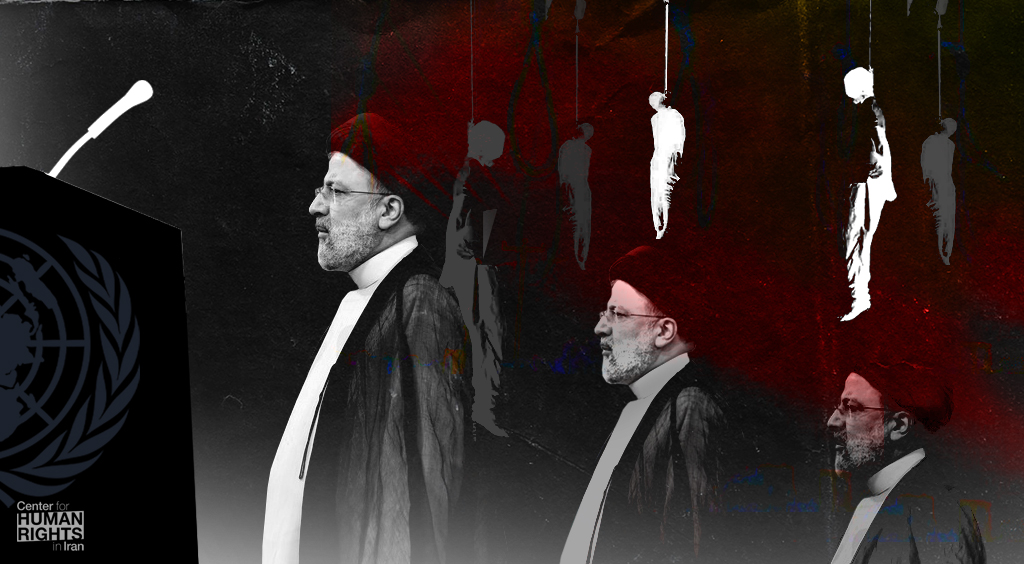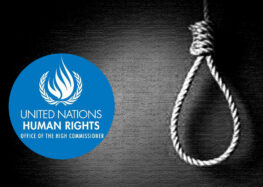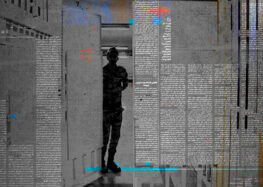Iran’s Raisi to Freely Address UNGA While Crushing Rights and Freedoms at Home
 Mahsa Amini’s Death in State Custody Should be Investigated as Murder
Mahsa Amini’s Death in State Custody Should be Investigated as Murder
World Must Condemn Violent Repression of Protests and Civil Society
September 19, 2022 – President Ebrahim Raisi will use his platform at the UN General Assembly (UNGA) on September 21 to freely address world leaders at a time when the government in Iran is blatantly violating the most basic and universal rights and committing violent crimes against its people with impunity, including deaths in state detention and the violent suppression of peaceful protest.
The death of Mahsa Amini, 22, in Tehran on September 16 after her arrest by morality police for allegedly wearing an improper hijab is only the latest manifestation of the deadly repression faced by Iranians on a daily basis.
“The killing of Mahsa Amini is part of a systematic pattern that has resulted in hundreds of Iranians dying at the hands of security forces over the last few years for exercising basic rights like protesting in the streets, or simply being a woman,” said Hadi Ghaemi, executive director of the Center for Human Rights in Iran (CHRI).
“Anyone who meets with Raisi—be they a UN or government official or diplomat—should be forcefully condemning the Iranian government’s blatant human rights violations,” said Ghaemi, “and reporters should directly raise the intensifying violent suppression of the Iranian people at press conferences.”
CHRI echoes a call by prominent Iranian human rights lawyer Nasrin Sotoudeh for Amini’s death to be investigated as deliberate murder.
Protests Across Iran Met with State Violence
Protests erupted in Iran on September 16 after Amini was pronounced dead just days after she was arrested, and were ongoing in at least 11 cities including Tehran and Divandareh as of the time of this writing.
Videos shared on social media showed protesters facing armed state security forces surrounded by clouds of smoke with sounds of gunfire in the background. Some videos showed severely injured protesters being carried to safety.
“Iranians from every layer of society are trying to air their grievances against a corrupt and repressive state, despite being met with violent repression and imprisonment,” said Ghaemi.
“Civil society is on high alert; if you’re a prominent voice who has publicly opposed repression or an activist and aren’t already in jail, you know you could be taken there any day,” he added.
“The Iranian government’s long record of human rights violations, including the growing number of deaths in state custody, the violent suppression of protests, and the increasing execution rate, should be front and center when Raisi is in New York,” said Ghaemi.
CHRI implores world leaders and UN human rights experts and bodies to speak out publicly and forcefully condemning the Raisi government’s egregious record of intensifying rights violations, and to call on the government in Iran to allow protest without the threat of violence, arbitrary arrest, or death.
Raisi, elected in 2020 when he was judiciary chief after running virtually uncontested, has a personal record of gross human rights violations as well. CHRI echoes UN human rights experts’ call for accountability regarding the 1988 mass extrajudicial executions in Iran in which Raisi played a direct and leading role, and urges the UN to establish an international investigation into those politically motivated killings.
Activists, Civil Society Strangulated
Raisi is visiting the UN as a representative of a government that violently represses peaceful protest and dissent and commits human rights violations with impunity. Recent events that warrant international outcry include:
- The death of Mahsa Amini in state custody
- Violent persecution of women peacefully resisting the country’s compulsory hijab law
- The sentencing to death earlier this month of two LGBTQ individuals
- Increasing executions: At least 251 people were executed in the first six months of 2022 after trials lacking any semblance of due process
- Worsening crackdown on civil society that has resulted in the arrests and imprisonment of activists, dissidents, filmmakers and other cultural figures, and justice-seeking mothers whose children were killed at street protests
- Killings of peaceful protesters by state security forces
- Imprisonment of the country’s leading human rights lawyers
- Denial of critical medical care to political prisoners, resulting in prisoner deaths
- Internet shutdowns and draconian restriction of internet use to block news of atrocities and control access to information
- Intense persecution of the Baha’i minority faith that includes arbitrary arrests and confiscations of their lands and properties
- The ongoing detention of dual and foreign nationals for use as bargaining chips in the government’s international relations
The unprecedented level of repression is happening as the government in Iran is preparing for the succession of the unelected Supreme Leader Ali Khamenei by eliminating any space for criticism.
“We’re seeing the state preparing the groundwork for Khamenei’s replacement by gagging all potential critics through intimidation or imprisonment,” said Ghaemi.
“This government wants a smooth transition of power from one old guard to another without any challenge from an underserved, restless population, and expects impunity for its crimes to continue,” he said.






